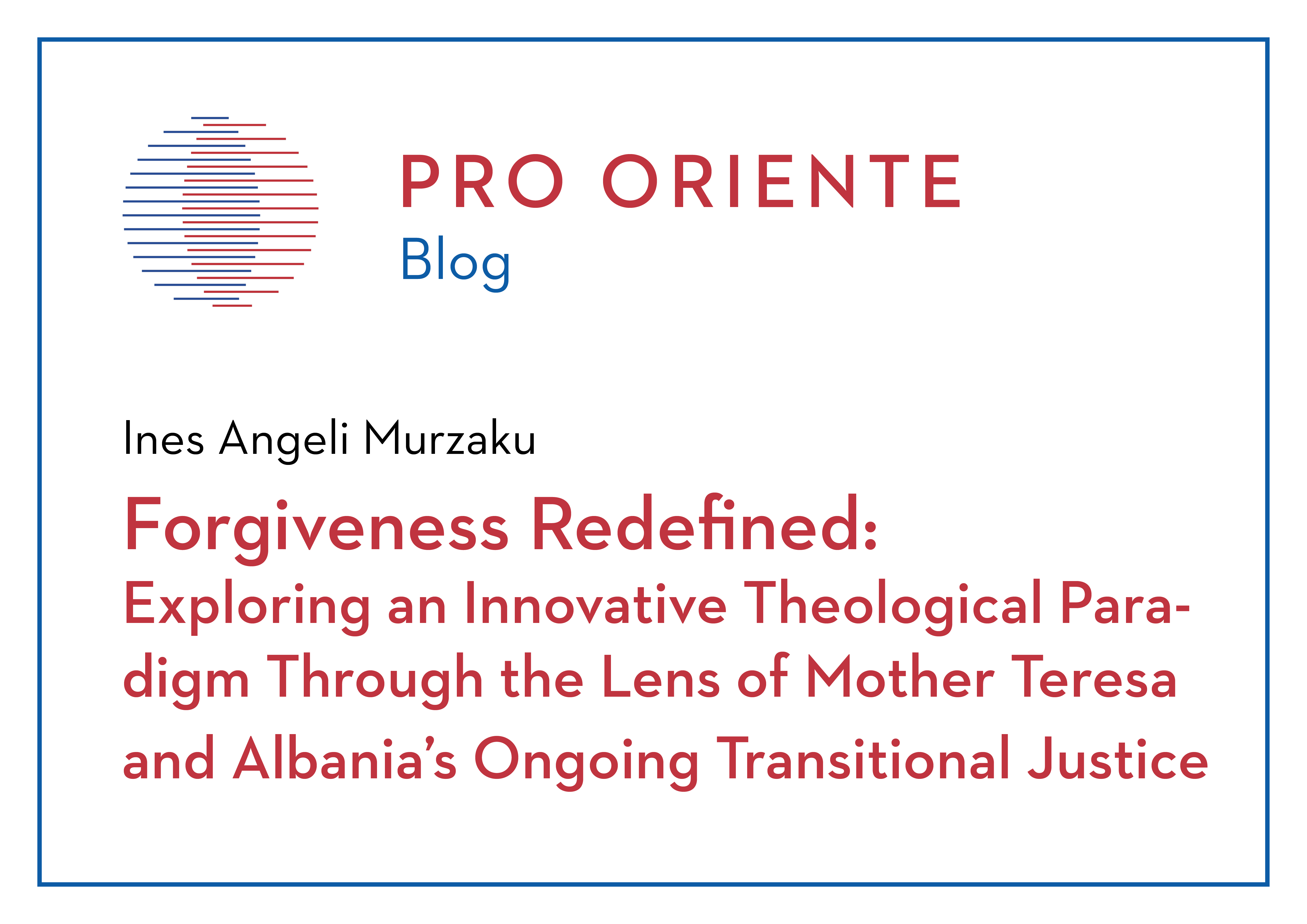Forgiveness Redefined: Exploring an Innovative Theological Paradigm Through the Lens of Mother Teresa and Albania's Ongoing Transitional Justice
13. February 2024
Thema: Healing of Wounded Memories

Religious Demographics and Persecution in Albania
Albania, known for its religious diversity and history of severe Communist persecution, stands as a significant case study in transitional justice, ecumenical and interfaith reconciliation, and the concept of Holistic Reconciliation. This paper explores Albania's religious composition, where Sunni Muslims constitute nearly 57 percent of the population, Roman Catholics 10 percent, members of the Albanian Orthodox Church 7 percent, and members of the Bektashi Order (an Islamic Sufi order) 2 percent. These demographics have remained relatively stable, as evidenced by the 2022 Report on International Religious Freedom: Albania.
All religious groups in Albania, including the Catholic Church, faced severe persecution during the Communist era. These persecution united religious and lay individuals, highlighting the need for transitional justice. Albania's situation underscores the importance of Holistic Reconciliation, with religious leaders playing a key role in this process.
An Innovative Theological Paradigm – Holistic Reconciliation
In August 1989, St. Mother Teresa's visit to Albania marked a significant turning point, promoting a theological paradigm centered on forgiveness and reconciliation. Despite the surveillance of the Albanian Secret Police, her visit, including meetings with high-profile government figures and a controversial tribute at dictator Enver Hoxha's grave, symbolized the beginning of Holistic National Reconciliation. Mother Teresa's actions were seen as a model for healing and bridging gaps between the persecuted and their persecutors, emphasizing the importance of forgiveness in reconciliation.
Communism's Legacy in Albania
The fall of communism in 1991 in Albania marked the end of isolation but not the communist mindset. The transition from a totalitarian regime to democracy was abrupt, leading to questions about how justice could be served for past communist crimes, especially when former communists held significant power in the new government.
Justice Deferred is Justice Denied: Exploring Albania's Legal Challenges
Transitional justice in Albania faced numerous challenges, including the absence of a genuine dissident movement, the intertwining of past and present politics, and the manipulation of justice reforms for personal gains. Efforts to address the dictatorship's crimes were limited, with laws passed in 1995 regulating access to secret files but failing to bring significant policy changes or lustration.
Religious Communities Unite: An Ecumenical Interfaith Moment
Albania's religious communities, having suffered severe persecution, now have the opportunity to contribute to a holistic interfaith movement focused on reconciliation. This effort aligns with the theological concept of redemption, where justice is seen as rooted in love, a notion emphasized by Pope John Paul II.
Embrace and Forgive: Exploring the Theology of Redemption
Holistic Reconciliation to Holistic Healing
Forgiveness, in this context, is not opposed to justice but is its fulfillment, essential for healing. In conflicts where each party sees itself as a victim, the pursuit of justice can lead to new injustices. The primary obligation is to embrace and forgive, reflecting the unconditional love of God. Forgiveness invites wrongdoers to self-awareness and repentance, facilitating healing for all involved.
Mother Teresa's visit to Albania exemplified this theological approach, focusing on personal trauma healing and reconciliation across social, political, ethnic, and religious divides. Her actions laid the foundation for a theology of reconciliation that transcends religious boundaries, offering support to those traumatized by decades of communist persecution. This approach emphasizes the interconnectedness of human relationships and the need for harmonious reconciliation with the Creator, as seen in both Orthodox and Catholic traditions.
Nexhmije Hoxha, the wife of the Albanian dictator, noted Mother Teresa's lack of animosity during her 1989 visit, highlighting her forgiving nature. The theology of unconditional love and reconciliation without condoning injustice offers a framework for reconstructing political theology, particularly in Albania.
In conclusion, the distinctive historical and religious milieu of Albania, juxtaposed with its shift toward democracy, offers a compelling narrative underscoring the significance of transitional justice and reconciliation. The integral role of theologians and religious leaders becomes evident in championing Holistic Reconciliation, wherein forgiveness and love serve as conduits to national redemption and enduring peace. Mother Teresa, through her exemplified application of a theological paradigm of forgiveness, provides a noteworthy model for application in the broader context.



